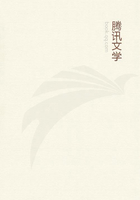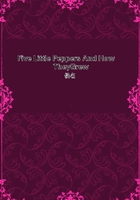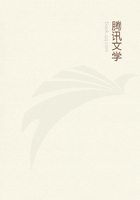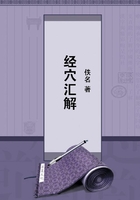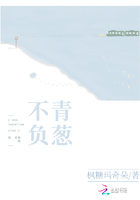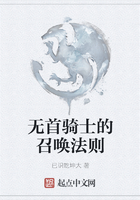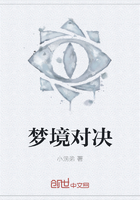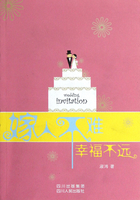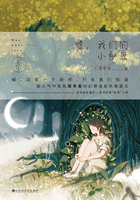So the argument has by a different course reached the same point;but we must try to state this even more clearly. Since there are evidently more than one end, and we choose some of these (e.g. wealth, flutes, and in general instruments) for the sake of something else, clearly not all ends are final ends; but the chief good is evidently something final. Therefore, if there is only one final end, this will be what we are seeking, and if there are more than one, the most final of these will be what we are seeking. Now we call that which is in itself worthy of pursuit more final than that which is worthy of pursuit for the sake of something else, and that which is never desirable for the sake of something else more final than the things that are desirable both in themselves and for the sake of that other thing, and therefore we call final without qualification that which is always desirable in itself and never for the sake of something else.
Now such a thing happiness, above all else, is held to be; for this we choose always for self and never for the sake of something else, but honour, pleasure, reason, and every virtue we choose indeed for themselves (for if nothing resulted from them we should still choose each of them), but we choose them also for the sake of happiness, judging that by means of them we shall be happy. Happiness, on the other hand, no one chooses for the sake of these, nor, in general, for anything other than itself.
From the point of view of self-sufficiency the same result seems to follow; for the final good is thought to be self-sufficient. Now by self-sufficient we do not mean that which is sufficient for a man by himself, for one who lives a solitary life, but also for parents, children, wife, and in general for his friends and fellow citizens, since man is born for citizenship. But some limit must be set to this;for if we extend our requirement to ancestors and descendants and friends' friends we are in for an infinite series. Let us examine this question, however, on another occasion; the self-sufficient we now define as that which when isolated makes life desirable and lacking in nothing; and such we think happiness to be; and further we think it most desirable of all things, without being counted as one good thing among others- if it were so counted it would clearly be made more desirable by the addition of even the least of goods; for that which is added becomes an excess of goods, and of goods the greater is always more desirable. Happiness, then, is something final and self-sufficient, and is the end of action.
Presumably, however, to say that happiness is the chief good seems a platitude, and a clearer account of what it is still desired. This might perhaps be given, if we could first ascertain the function of man. For just as for a flute-player, a sculptor, or an artist, and, in general, for all things that have a function or activity, the good and the 'well' is thought to reside in the function, so would it seem to be for man, if he has a function. Have the carpenter, then, and the tanner certain functions or activities, and has man none? Is he born without a function? Or as eye, hand, foot, and in general each of the parts evidently has a function, may one lay it down that man similarly has a function apart from all these? What then can this be? Life seems to be common even to plants, but we are seeking what is peculiar to man. Let us exclude, therefore, the life of nutrition and growth. Next there would be a life of perception, but it also seems to be common even to the horse, the ox, and every animal.
There remains, then, an active life of the element that has a rational principle; of this, one part has such a principle in the sense of being obedient to one, the other in the sense of possessing one and exercising thought. And, as 'life of the rational element' also has two meanings, we must state that life in the sense of activity is what we mean; for this seems to be the more proper sense of the term. Now if the function of man is an activity of soul which follows or implies a rational principle, and if we say 'so-and-so-and 'a good so-and-so' have a function which is the same in kind, e.g. a lyre, and a good lyre-player, and so without qualification in all cases, eminence in respect of goodness being idded to the name of the function (for the function of a lyre-player is to play the lyre, and that of a good lyre-player is to do so well): if this is the case, and we state the function of man to be a certain kind of life, and this to be an activity or actions of the soul implying a rational principle, and the function of a good man to be the good and noble performance of these, and if any action is well performed when it is performed in accordance with the appropriate excellence: if this is the case, human good turns out to be activity of soul in accordance with virtue, and if there are more than one virtue, in accordance with the best and most complete.
But we must add 'in a complete life.' For one swallow does not make a summer, nor does one day; and so too one day, or a short time, does not make a man blessed and happy.
Let this serve as an outline of the good; for we must presumably first sketch it roughly, and then later fill in the details. But it would seem that any one is capable of carrying on and articulating what has once been well outlined, and that time is a good discoverer or partner in such a work; to which facts the advances of the arts are due; for any one can add what is lacking. And we must also remember what has been said before, and not look for precision in all things alike, but in each class of things such precision as accords with the subject-matter, and so much as is appropriate to the inquiry.

